A TEAM OF GRIZZLED TINSELTOWN SCRIPT WRITERS could not have conceived a story so fantastic. In fact, when one hears the setup, the typical reaction involves a head shake and the words, “No (expletive) way.”
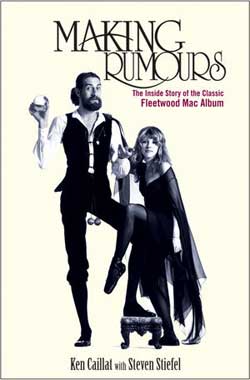 In 1976, Fleetwood Mac were poised for an ignominious demise. Their latest album—the first to feature the brilliant but mercurial duo of Lindsey Buckingham and vocalist Stevie Nicks—had failed to gain much traction out of the gate, and as the band prepared to sequester themselves in a studio in Saulsalito to record the follow-up, a cavalcade of spectacular disasters gathered on the horizon.
In 1976, Fleetwood Mac were poised for an ignominious demise. Their latest album—the first to feature the brilliant but mercurial duo of Lindsey Buckingham and vocalist Stevie Nicks—had failed to gain much traction out of the gate, and as the band prepared to sequester themselves in a studio in Saulsalito to record the follow-up, a cavalcade of spectacular disasters gathered on the horizon.
First, there was the in-fighting. Although Stevie and Lindsey were a couple when they had joined the band a year prior, by the Bicentennial, a bitter split saw the former lovers reduced to incessant volleys of petty and venomous attacks on one another. Meanwhile, Christine and John McVie were in the process of divorcing and drummer Mick Fleetwood, unbeknownst to the others, stood on verge of losing his own marriage when his wife back in England approached her tolerance for playing second fiddle to his band.
On top of these combustible relations, Fleetwood Mac were developing an increasing affinity for drugs and alcohol, adding kerosene to a fire that had already caught far too much kindle to be controlled. Infighting, jealousy and occasionally violent outbursts became the norm at a time when the band were preparing to essentially hole up together for an entire year, writing songs, recording an album and beginning the supporting tour.
Adding even more pressure, and what they could not see at the time, was that their previous record would eventually take off while they were recording the new album. While admittedly welcome news by most estimations, the development also invested their new album with heightened anxiety as the expectations of their record company and a growing fan base reached critical mass.
The odds on the band even surviving had reached lottery-sized proportions, and the chances of them releasing an album worth more than the vinyl on which it was stamped were even longer.
Asked to conduct this symphony of dysfunction was a twenty-nine year-old kid named Ken Caillat, an up-and-coming Hollywood recording engineer who had never even heard of Fleetwood Mac until he was first invited to work with them that year.
Easygoing, friendly and occasionally mischievous, Ken proved the perfect guy for the job, somehow navigating the acidic relations between the musicians and not simply recording their songs, but coaxing from each of them their most brilliant output to date, and arguably, ever. Ken would eventually be named the album’s producer, and that album would become Rumours, the Grammy Award-winning sonic masterpiece that has sold over forty million copies worldwide.
Published in 2012, Making Rumours sees Ken (whose daughter is Grammy-winning singer/songwriter Colbie Caillat), stepping out of the control room to tell the story behind that record and in doing so, lifting the lid on one of the most compelling and improbable stories in classic rock.
I sat down with Ken to discuss his book and some of the stories behind the stories.
Joe Daly: Rumours has been out for thirty-five years. What inspired you to finally tell the story behind it?
Ken Caillat: Obviously a thing like this takes a bit of time and effort, which I didn’t have. Plus I think I had so many stories in my head, and people were always asking me to tell them, or introducing me like, “This is Ken. Hey, tell them the story about…” I’d say, “Wait, how do you know that?” They’d say, “Oh, you told me about that a long time ago.” (laughing) Somebody finally suggested I write a book about it and I thought, “No, I’m not going to do a book.” They said, “What if we get an agent for you?” and I just said, “I’m not going to do any work on this. Nobody’s going to be interested in that.” So this one person found an agent and the agent flew out from New York and said he wanted to do the book, so there you go.
But before that happened, I started to think that maybe it was a good idea, because there were a lot of stories and I didn’t want to forget them and at some point I would. I experienced something very unique that very few people do, and I wanted people to know exactly how a big-time record is done by a big-time band. It’s not like you see on the TV; it’s a hell of a lot of hard work and a lot of personalities going in there. It’s like creating Egyptian cotton, with like a thousand-count thread, you know? All these fibers, these sounds, are woven together to make this intricate fabric of sound, and that’s what we did. Back then was when we had the time to do it; we weren’t rushed.
Also, part of the story is that back then we only had twenty-four tracks. Today you can have unlimited tracks with ProTools. I tell people, “If you want to make a big-time record, just lock off the ProTools rig to twenty-four tracks and you’re going to find out real quick that you have to start making decisions, and everybody in the room, and in the band, is going to have to get involved in the decisions.” You’re always combining with twenty-four tracks; you’re always making the final acoustic picture.
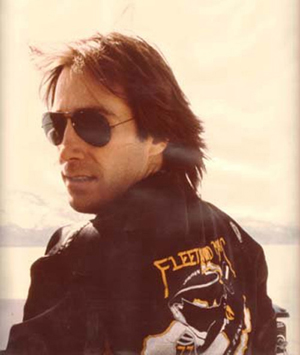 You reveal throughout the story that each song is packed with layers of ornamentations and melodies. Was there ever a concern that these songs might be fairly difficult to play live?
You reveal throughout the story that each song is packed with layers of ornamentations and melodies. Was there ever a concern that these songs might be fairly difficult to play live?
No. I mean, we weren’t like the Beatles, who had these crazy horns. Basically we had a drum track, we had a bass track, we had a couple guitar tracks and we had a keyboard track or two. Maybe we had a Rhodes and an organ. We had Stevie’s vocal, Lindsey’s vocal, Christine’s vocal and maybe some background vocals. But all that was attainable and it really wasn’t an issue.
The level of detail is at times staggering. For example, you’ll talk about recording a track and mention that you moved it from the right to the left speaker. How in the world did you recall these decisions with such specificity?
Well, I did it like a thousand times, you know? And I had all the track sheets, so I could look at the track sheets and tell you what I would have done. So if I had the guitar on the left I knew I had to have something opposite to that. I was very much into hard panning. I like to make the mixes as wide as they could be, so I might have one guitar on full left and another guitar on full right, so they’re opposing each other, or an opposing keyboard on the opposite side of the guitar. Like the Beatles did—big, wide mixes.
What was the greater challenge at the time—resolving the technical issues or navigating the personalities of the musicians?
Oh, the personalities. The technical stuff, that was a luxury. For the technical stuff they gave me all the time in the world to make whatever I wanted and to experiment and to try to make the best out of the music. But the whole breakup of all the band members, and the crying and swearing and, “I hate you,” and “How could you cheat on me?” That was tough. I’m not really good with words in situations like that. I didn’t put my arm around them and say, “Oh, you’ll be alright.” I’d probably say to Stevie and Linsdey, “Hey you guys, why don’t you take that outside? Why don’t you go and have a coffee somewhere and let the other band members who aren’t fighting work on the song.” I would be trying to avoid the conflict to get them out of the room.
Every time I talk about this book, I recall more information about what happened. Their previous album (known as “the White Album”), was just starting to climb the charts when we started making Rumours. It didn’t top the charts until the ninth month that we were recording Rumours. That never happens now. Now the record comes out and it’s milked to death and then they rush you into the studio because they don’t want the band to be forgotten. But you’re never already working on a hit record when you’re (charting).
When you finally sat down to write this story, did you have any reservations about revealing some of these less-than-flattering behaviors of the band?
I really didn’t. The thing was, it’s a great album and I wanted people to know how a real record is made. The fact is, they’re all geniuses and I tried to compliment them as much as possible. I believe I tattled as much on me as anybody else. Basically my rule was that I wasn’t going to talk about it if it didn’t happen in front of me and it didn’t affect the session. So what I heard they might have been doing in a hotel room at night wasn’t my call, but what happened in front of me, that was my call, or if it affected the session, that was my call.
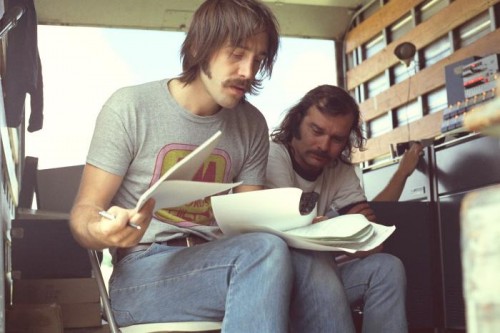 What’s your relationship with the musicians today?
What’s your relationship with the musicians today?
Well, we’ve all moved apart, so I don’t have emails on Stevie and Lindsey, but I do talk with Mick and John every once in awhile. Christine called me a few months ago and thanked me for writing the book. She said she loved how I portrayed her and she said, “That’s how I want to be remembered.” She really enjoyed the book and she had forgotten all those details about how hard we all worked and she said, “Quite honestly Ken, you’ve kind of put the passion back in music for me.” So that was great.
I’ve talked to Mick and talked to John, and John still sends me congratulations on Colbie and so does Mick, but we don’t talk that much.
Other members of the band, who have enjoyed variously-successful solo careers, tend to outshine Mick’s musicianship, yet you point out that even in 1976, he was a richly-talented timekeeper. What do you think was his greatest strength as a musician?
I don’t know how to describe it, but he’s just an amazing drummer. He’s got feel. Most other drummers sit there and they can be really good—the pros can be really good—but he has this feel. He was a little bit behind the beat, but it was just enough that it felt aggressive and laid-back at the same time. Really powerful toms, great beat…I mean, maybe I’m using too many words to describe the fact that he’s just an amazing drummer.
One of the more delicate story lines in the book pertains to you and the two relationships you had at the time, which had little bit of overlap. Were you reluctant to bring that story public?
Nah. Not really. I mean, I talked to both of the women and asked if it was OK and I think they were kind of flattered to be heroines in the book. But I was concerned about my daughters. How would they feel about me sleeping around, and blah, blah blah? Then I thought that I’d like to know the intimate details about my dad. What were my mom and dad like when they were growing up in their twenties? What did they do? It’s probably good to let (my daughters) know that I’m not a saint or an old fuddy duddy, you know?
I just said, “The rules are that if I’m going to tell this story, I’m going to tell the truth as best as I can.”
What was the reaction from your daughters? Were they supportive?
(laughing) Yeah, when they finally read it! My one daughter just said, I think six months ago, “I finally finished the book, Dad, and I loved it.” But I remember Colbie was on a plane with somebody else and she was reading it, and the other person was reading it too, and they were almost on the same page and the other person goes, “Your dad did coke!” I feel good though. My mom read it. She said, “I didn’t know you were using drugs. I knew you did marijuana, I didn’t know you did drugs.” She didn’t like the crabs thing. She said, “I didn’t like the crabs story!”
That freaked me out, too.
Well I didn’t like it either, but I thought it really showed the depth of what happens. I mean, it was crazy. Coming home in the morning and there’s three women in your bed. It wasn’t even like, “What are you guys doing here?” It was more like, “Move over,” you know?
When Colbie decided on a career in music, did you have any professional advice that you felt you needed to pass on to her?
Yeah, you’re gonna be surprised what it is. She hadn’t decided what she was doing. She was just singing all the time and her older sister was going to college and she wanted to be an actress, so we were paying for head shots and acting classes and all this other stuff. So Colbie was just singing and I said, “Well if that’s what you want to do, I think we should get you some voice lessons. I want to make sure you learn how to breathe properly and how to use your diaphragm properly so you don’t damage your voice.”
A while later, I came home and I said, “I was just thinking that if you want to sing, Colbie, what are you going to sing? You don’t play an instrument, you don’t write any songs, so that means we’re going to have to buy somebody else’s songs. That’s going to be problematic because when you’re buying songs, the best songs are kept for hit artists and you won’t be a hit artist, so it will be hard to get you a good song. So the only choice for you, if you want to be a singer, is to take some instrument lessons and learn how to play and I promise you, the moment that you put your hands on an instrument and create a chord, your voice will respond with a corresponding note and word and your heart will fill out the rest of the words and you’ll write a song. I’ll back it up with a hundred dollars every time you write a song.”
I taught her what modern song structure is, where the verse tells a story and the chorus is the payoff of the story and the bridge is the breathing space between. She took her first guitar lesson and came home and wrote her first song. So I was right. And surprisingly enough, the big payoff for her dad was that she was doing an interview one day and I was there in the room, and she said, “My dad was right,” and she told them exactly what I said. How often does that happen where the parent got it right? (laughing)
Is there anything you miss about working in the Seventies? Anything about the industry or your specific job?
Well, yeah. In the Seventies there were a lot less cars on the streets and it was a great time for musicians. You could go down to the Troubadour and you’d see Linda Ronstadt sitting there or Glenn Fry of the Eagles hanging out. It was very open. It was definitely a period of innocence, I guess.
And the record companies had big budgets. We had an unlimited amount of time to make Rumours. I saw Stevie a couple years ago, right before she was about to start working on that album, and she said, “Ken, can you believe that I have thirteen days in the studio? That’s all my budget allows.” We had 365. Well, that’s all we used, because we didn’t have any limitations at all.
In addition to the critical acclaim it has received, your book has inspired a renewed interest in an album that has already sold forty-million copies. Did the experience of writing this book fulfill your expectations?
The bottom line is that they’re a great band, but we did the work and that’s the important thing. We all have flaws and we all have to figure out how to deal with them and we all go in and try to paint our canvas the best way we can and hopefully nobody finds out that we really don’t know what we’re talking about. We’re doing the best we can. That’s what I wanted to tell people. This is the great American story.
These guys persevered through breaking up—all of them—and people don’t get the fact that the songs were about the breakups, and just because they were able to bite their lips and deal with that, they still had to listen to those songs and those lyrics for the next year while we were making the record. Like “Go Your Own Way,” it still makes Lindsey mad, I’m sure now. And it still hurts Stevie, but they still have to sing it, and I think it’s pretty good that they were still willing to put all their other trouble aside and say, “This is our job, we’re musicians, let’s put everything else aside and make this record, because that’s our job. It’ll be better for us if we can do it.” And I want people to know that.
Ken, thanks so much for your time.
Thanks, Joe.

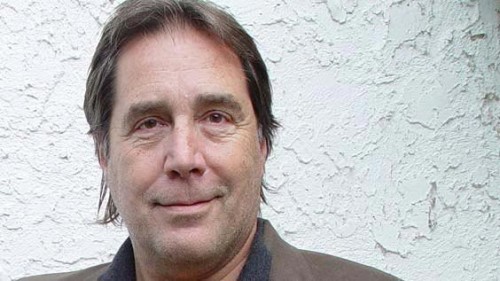
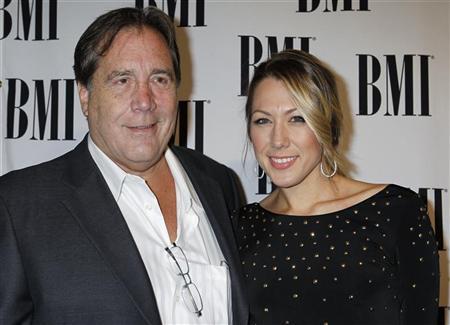


If I were in grad school for Behavioral Psychology today
I could write an entire paper
just on the eye contact & body language
between Stevie & Lindsey
while singing “The Chain”
on the reunion DVD, The Dance.
Stellar work
Joe Daly.
I’ve gotta commend you here, Mr. Daly. Well done. It’s a record with long legs, Rumors. All the turmoil and weirdness and actual rumors surrounding its creation and completion seem like they might detract from the sound. In your hands, interviewing the right guy about it, the stuff comes alive and combines with the music rather perfectly. Thanks pal!